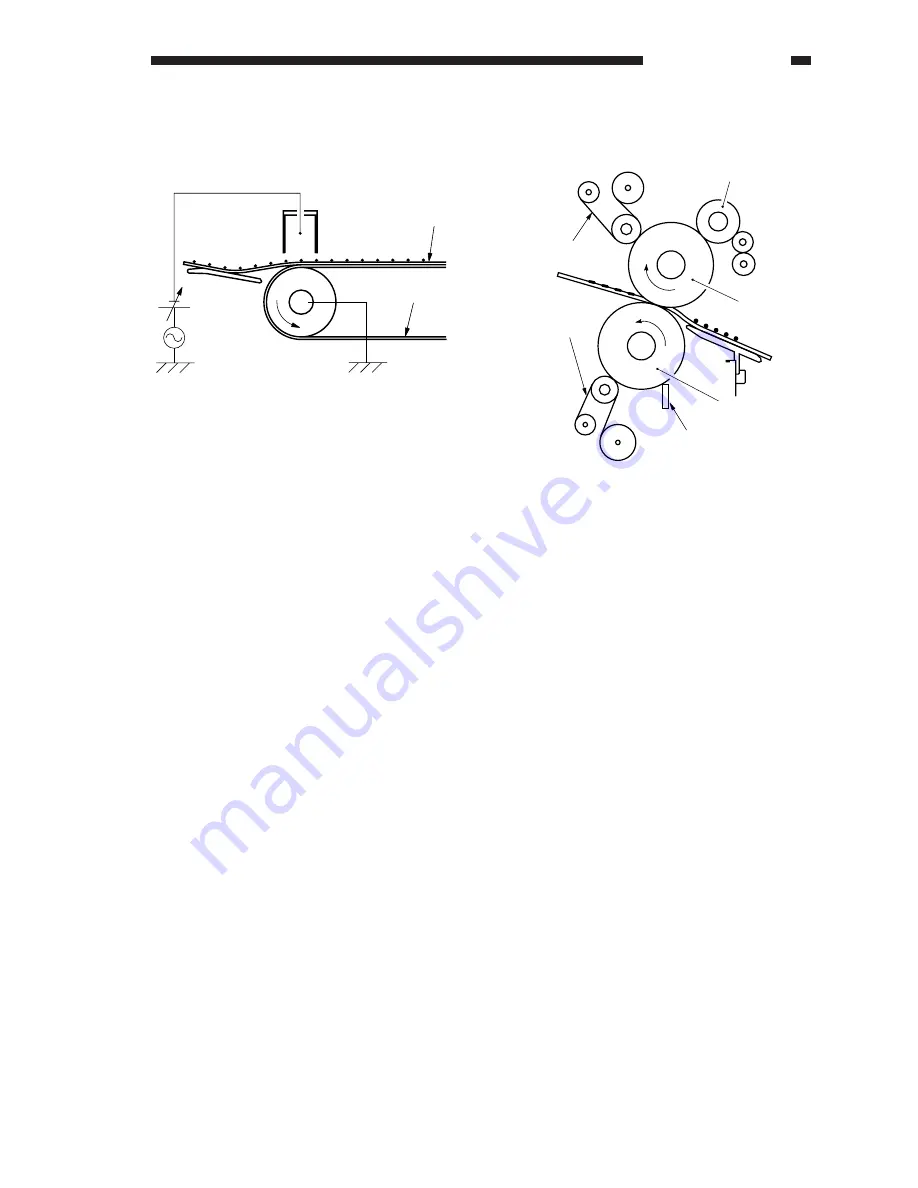
COPYRIGHT © 2001 CANON INC. CANON CLC1000/1000S/3100 REV.2 MAY 2001 PRINTED IN JAPAN (IMPRIME AU JAPON)
2-7
2. COPYING PROCESS
H. Separation (step 6)
Figure 2-111
The CLC1000 separates paper from the
transfer belt using the rigidity of paper (curvature
separation). Since thin paper tends to have little
rigidity, it can wrap around the transfer belt, failing
to separate. To prevent such a problem, the
separation charging assembly applies AC corona
and DC bias, facilitating the separation of paper
from the transfer belt.
Transfer belt
Paper
Separation charging
assembly
I.
Fixing (step 7)
Figure 2-112
Depending on the selected color mode, a
maximum of four transfers takes place before the
paper is forwarded to the fixing assembly.
A pair of fixing rollers move the paper under
pressure and heat, thereby melting the toner
particles (of four colors) to produce as many colors
as needed, reproducing the original images and
fusing them into the fibers of the paper.
To prevent adhesion of toner from paper to the
surfaces of the fixing rollers (offset), the oil
applying roller constantly supplies silicone oil to the
rollers.
The upper fixing roller is cleaned by a cleaning
web, and the lower fixing roller is cleaned by a
cleaning web and a cleaning blade.
Oil applying roller
Upper fixing web
Upper fixing roller
Lower fixing web
Lower fixing roller
Oil removing blade
Summary of Contents for 1000S
Page 12: ......
Page 30: ......
Page 44: ......
Page 86: ......
Page 254: ......
Page 372: ......
Page 374: ......
Page 418: ......
Page 438: ......
Page 442: ......
Page 754: ......
Page 764: ......
Page 766: ......
Page 840: ...0501GR PRINTED IN JAPAN IMPRIME AU JAPON This publication is printed on 100 reprocessed paper ...










































